Gone by Dawn ★★★½
Gone by Dawn 2: Dead by Dusk ★★½
“Stripped to kill.”
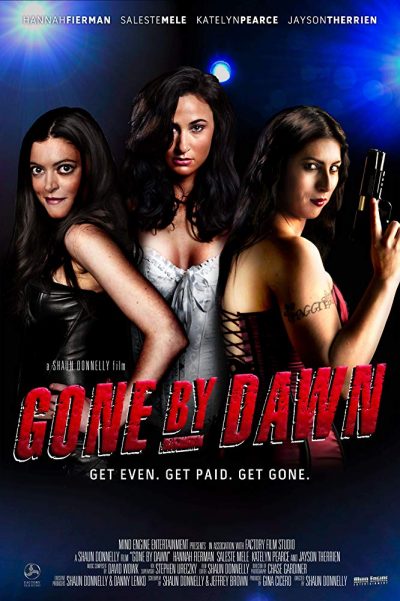 I decided I might as well combine these two into a single review. Having watched them back-to-back, even though made and set three years apart, they felt very much like the continuation of a single story about the same characters. The main one is Roxy (Mele), who is a dancer at a Wisconsin strip-club run by the sleazy Stag (Therrien), mostly as a money-laundering front for local organized crime. When he and his pal rape an employee, Alana (Pearce), Roxy along with the victim and another dancer, Crystal (Fierman), decide to take revenge by robbing Stag. That means getting into the safe in his office where the money is, and he’s not exactly going to give up the combination freely. Still, nothing that a piano-wire garrotte round the testicles can’t solve, surely? Except, as usual in this genre, the heist doesn’t go smoothly. Stag’s office quickly begins to resemble a mortuary, as unwelcome guests need to be handled.
I decided I might as well combine these two into a single review. Having watched them back-to-back, even though made and set three years apart, they felt very much like the continuation of a single story about the same characters. The main one is Roxy (Mele), who is a dancer at a Wisconsin strip-club run by the sleazy Stag (Therrien), mostly as a money-laundering front for local organized crime. When he and his pal rape an employee, Alana (Pearce), Roxy along with the victim and another dancer, Crystal (Fierman), decide to take revenge by robbing Stag. That means getting into the safe in his office where the money is, and he’s not exactly going to give up the combination freely. Still, nothing that a piano-wire garrotte round the testicles can’t solve, surely? Except, as usual in this genre, the heist doesn’t go smoothly. Stag’s office quickly begins to resemble a mortuary, as unwelcome guests need to be handled.
This was, to be honest, better than I expected. There is, of course, the usual tension in grindhouse-style films about strippers – wanting them to be seen as more than T&A… while simultaneously being required to depict them as T&A. But the movie manages to strike a good balance here: while certainly not short on nudity, the lead actresses deliver performances which manage to make their characters feel like real people. The script also avoids people having to act like idiots too much, and the issue of the safe’s combination is solved in a way which is actually kinda clever. The low budget is a bit obvious in the limited locations and cast – we don’t get much outside of the club and an apartment – although in some ways, that works as much for the feature as against it. For example, it’s likely a factor in story-telling which certainly doesn’t hang around; maybe 65 minutes between opening and closing credits. And while there may be honour among thieves, there doesn’t appear to be much among strippers.
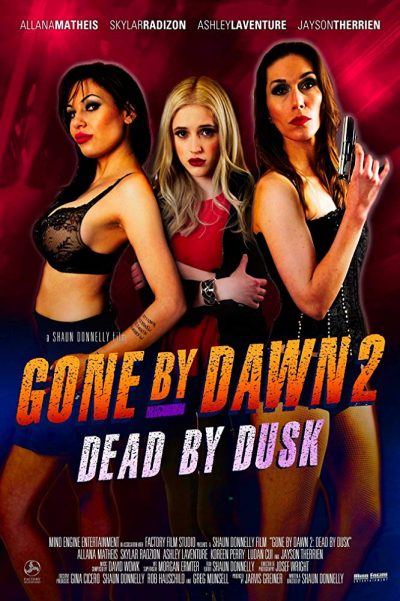 I didn’t think the sequel worked as well. While Roxy returns, she has been recast, being now played by Matheis – I’m not sure what happened to Mele. Still, I did laugh when one supporting character greets her with, “You look different!” Oddly, while the first film started with Roxy skipping town, the second sees her back, working at the same venue where she was involved in a multiple homicide. I know strippers are renowned for making poor decisions, but still… It turns out, having absconded with nine hundred grand of the mob’s money isn’t a good idea. They want it back, and to this end, have sent a trio of hired killers, named the Three Bears by Roxy. They’re prepared to do anything, up to and including both kidnapping and murder. But Roxy, along with Jesse (Radzion), a friend of Alana’s, and another dancer, Alura (Laventure), plots to turn the tables on the Three Bears, by robbing their boss.
I didn’t think the sequel worked as well. While Roxy returns, she has been recast, being now played by Matheis – I’m not sure what happened to Mele. Still, I did laugh when one supporting character greets her with, “You look different!” Oddly, while the first film started with Roxy skipping town, the second sees her back, working at the same venue where she was involved in a multiple homicide. I know strippers are renowned for making poor decisions, but still… It turns out, having absconded with nine hundred grand of the mob’s money isn’t a good idea. They want it back, and to this end, have sent a trio of hired killers, named the Three Bears by Roxy. They’re prepared to do anything, up to and including both kidnapping and murder. But Roxy, along with Jesse (Radzion), a friend of Alana’s, and another dancer, Alura (Laventure), plots to turn the tables on the Three Bears, by robbing their boss.
Quite why the mob waited three years to take any action isn’t clear, and it’s just one of the problems with the story. Remember how I said the small-scale worked for the first film? That feels less true here, with the expanded script resulting in a bunch of loose ends and an unnecessarily stretched running-time of 107 minutes. For instance, we are introduced to a pair of cops, but they’re effectively unnecessary, and the same goes for a subplot which has Roxy visiting Stag in prison (one of the few players to return from the first film). Generally, I think I preferred Roxy 1.0 as well; I was just never quite convinced by Matheis in the role of an exotic dancer. The bits that work e.g. the ‘snake in the grass’ are mostly borrowed from its predecessor, though again, the movie does a good job with its characters.
Together, they make for a decent double-bill, though if you’re short on time, you might as well watch only the opener, since the sequel adds little in the way of development. It’s perhaps telling that I must confess to getting distracted in the middle of GBD 2 by a lengthy article on location Club Pierre, one of the oldest strip-clubs in Edmonton. So, not Wisconsin at all. :) But it probably says something when a movie’s location is more interesting that the film.
Dir: Shaun Donnelly
Star: Gone by Dawn – Saleste Mele, Hannah Fierman, Katelyn Pearce, Jayson Therrien
Gone by Dawn 2: Dead by Dusk – Allana Matheis, Skylar Radzion, Ashley Laventure, Koreen Perry





 And there I was, thinking Maleficent: Mistress of Evil would be the prettiest picture I saw in all of 2020. There’s a new champion, and whoever assembled the look of this one should have been honoured at the Oscars. Shot in Barcelona and the Canary Islands, it beats Maleficent by almost entirely avoiding CGI, in lieu of stunning locations such as the former residence of sculptor Xavier Corberó: “a mazelike estate constructed from cement that features nine connected structures and 300 arches.” That quote comes from a
And there I was, thinking Maleficent: Mistress of Evil would be the prettiest picture I saw in all of 2020. There’s a new champion, and whoever assembled the look of this one should have been honoured at the Oscars. Shot in Barcelona and the Canary Islands, it beats Maleficent by almost entirely avoiding CGI, in lieu of stunning locations such as the former residence of sculptor Xavier Corberó: “a mazelike estate constructed from cement that features nine connected structures and 300 arches.” That quote comes from a 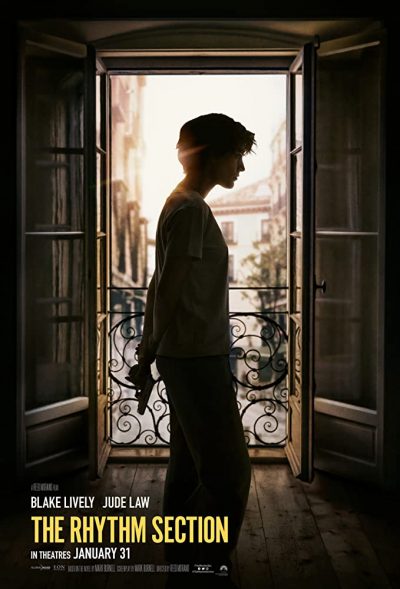 The action-heroine genre has seen its share of high-profile flops in the past. But this long-delayed entry, originally due out in February 2019, is among the worst, setting a record for the lowest ever opening at the North American box-office for a wide release. It took in only $2.8 million from 3,049 theaters when it opened in January, and ended with a worldwide gross below $6 million, against a budget of $50 million. While smaller in scale, that’s a
The action-heroine genre has seen its share of high-profile flops in the past. But this long-delayed entry, originally due out in February 2019, is among the worst, setting a record for the lowest ever opening at the North American box-office for a wide release. It took in only $2.8 million from 3,049 theaters when it opened in January, and ended with a worldwide gross below $6 million, against a budget of $50 million. While smaller in scale, that’s a 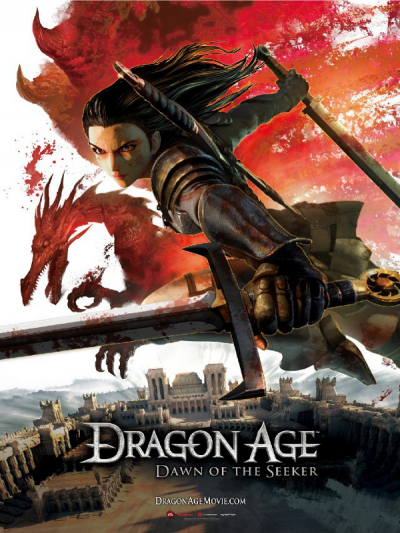 I have to start off with an important confession: I am not a gamer. I’ve never really been one. I might have played… two computer games in my entire life: “Tomb Raider 2” and “No-one Lives Forever 2”. That very special thing computer gamers experience when in front of the consoles? I’ve never felt it, it never got me. But then, I was born in the mid-70s, and this could be the territory of another generation. So maybe I’m not even qualified to evaluate a movie which was based on a computer game. On the other hand, I’m not reviewing a game here, but a film – and I think I know a fair bit about them! Hopefully, I get the details right.
I have to start off with an important confession: I am not a gamer. I’ve never really been one. I might have played… two computer games in my entire life: “Tomb Raider 2” and “No-one Lives Forever 2”. That very special thing computer gamers experience when in front of the consoles? I’ve never felt it, it never got me. But then, I was born in the mid-70s, and this could be the territory of another generation. So maybe I’m not even qualified to evaluate a movie which was based on a computer game. On the other hand, I’m not reviewing a game here, but a film – and I think I know a fair bit about them! Hopefully, I get the details right. The story was smarter than I thought it would be, having ordered the used DVD to a low price, and knowing virtually nothing about the “Dragon Age” universe. To be honest, I
The story was smarter than I thought it would be, having ordered the used DVD to a low price, and knowing virtually nothing about the “Dragon Age” universe. To be honest, I 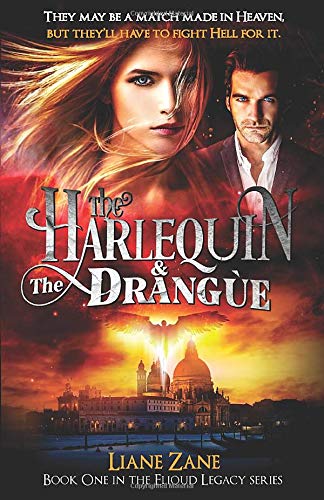
 Goodreads author Liane Zane is a published novelist under her real name, but has adopted this pen name for her new venture into paranormal romance, beginning with this opener for a projected series. She and I are Goodreads friends, so I accepted her offer of a free review copy, with no guarantee of a favorable one. PNR as such isn’t typically my thing (nor is “romance” in general, in the book trade sense); but both supernatural fiction and action adventure are, and I could easily approach this book in those terms. I’m also a sucker for a well-drawn action heroine who kicks butt and takes names –and here we have not just one but three such ladies.
Goodreads author Liane Zane is a published novelist under her real name, but has adopted this pen name for her new venture into paranormal romance, beginning with this opener for a projected series. She and I are Goodreads friends, so I accepted her offer of a free review copy, with no guarantee of a favorable one. PNR as such isn’t typically my thing (nor is “romance” in general, in the book trade sense); but both supernatural fiction and action adventure are, and I could easily approach this book in those terms. I’m also a sucker for a well-drawn action heroine who kicks butt and takes names –and here we have not just one but three such ladies.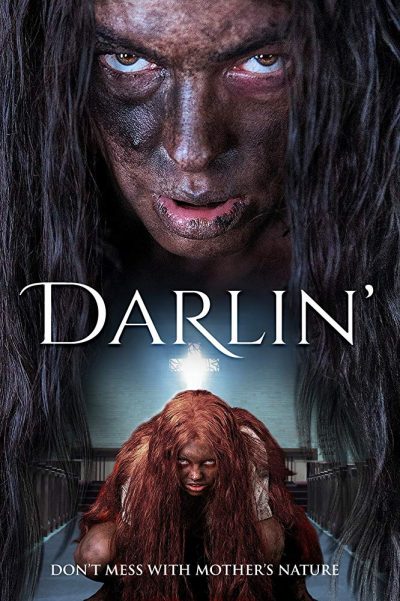 This strange little film probably makes more sense if you’ve seen The Woman, in which a feral cannibalistic woman, played by McIntosh, was captured and kept in the basement of a dysfunctional family. While this features McIntosh in the same role, it does work as a standalone film: its predecessor may help explain some of the background. Here, the woman drops off her equally uncivilized teenage daughter (Canny) at a hospital. Unsure of quite how such an unusual child should be handled, Darlin’ – called that, because of a bracelet spelling that out which she is wearing – is handed over to the Catholic church.
This strange little film probably makes more sense if you’ve seen The Woman, in which a feral cannibalistic woman, played by McIntosh, was captured and kept in the basement of a dysfunctional family. While this features McIntosh in the same role, it does work as a standalone film: its predecessor may help explain some of the background. Here, the woman drops off her equally uncivilized teenage daughter (Canny) at a hospital. Unsure of quite how such an unusual child should be handled, Darlin’ – called that, because of a bracelet spelling that out which she is wearing – is handed over to the Catholic church. Even if the film doesn’t quite live up to the title and poster, it turned out to be better than I expected… from the title and poster, to be honest. It has been my experience that, the more lurid the advertising, the more disappointed I’m likely to be. Films like this often don’t just fail to deliver on what they promise, they also struggle with basic aspects of film-making, like plot and characterization, providing a double-whammy of failure. While the former is true here (no-one, at any point, is
Even if the film doesn’t quite live up to the title and poster, it turned out to be better than I expected… from the title and poster, to be honest. It has been my experience that, the more lurid the advertising, the more disappointed I’m likely to be. Films like this often don’t just fail to deliver on what they promise, they also struggle with basic aspects of film-making, like plot and characterization, providing a double-whammy of failure. While the former is true here (no-one, at any point, is 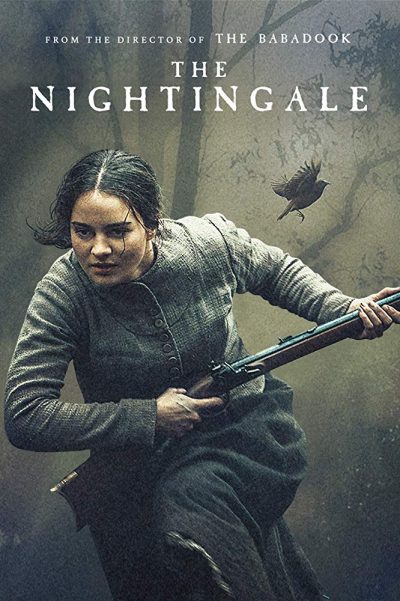 History is largely filled with people being unpleasant to each other, usually for belonging to a different race, religion, nationality or even species [if you want to go back to the Cro-Magnons pushing out the Neanderthals about 40,000 years ago]. It’s sad and unfortunate, but it’s not something for which I feel personal responsibility – not least because it tends to work in both directions. My ancestors may have been part of the British Empire who, for example, invented the concentration camp in the Boer War. But my ancestors were also subject to the ethnic cleansing of the Highland Clearances, forced out to make way for sheep. Attempts to make me feel guilty for the sins of my forefathers are thus largely doomed to fail.
History is largely filled with people being unpleasant to each other, usually for belonging to a different race, religion, nationality or even species [if you want to go back to the Cro-Magnons pushing out the Neanderthals about 40,000 years ago]. It’s sad and unfortunate, but it’s not something for which I feel personal responsibility – not least because it tends to work in both directions. My ancestors may have been part of the British Empire who, for example, invented the concentration camp in the Boer War. But my ancestors were also subject to the ethnic cleansing of the Highland Clearances, forced out to make way for sheep. Attempts to make me feel guilty for the sins of my forefathers are thus largely doomed to fail.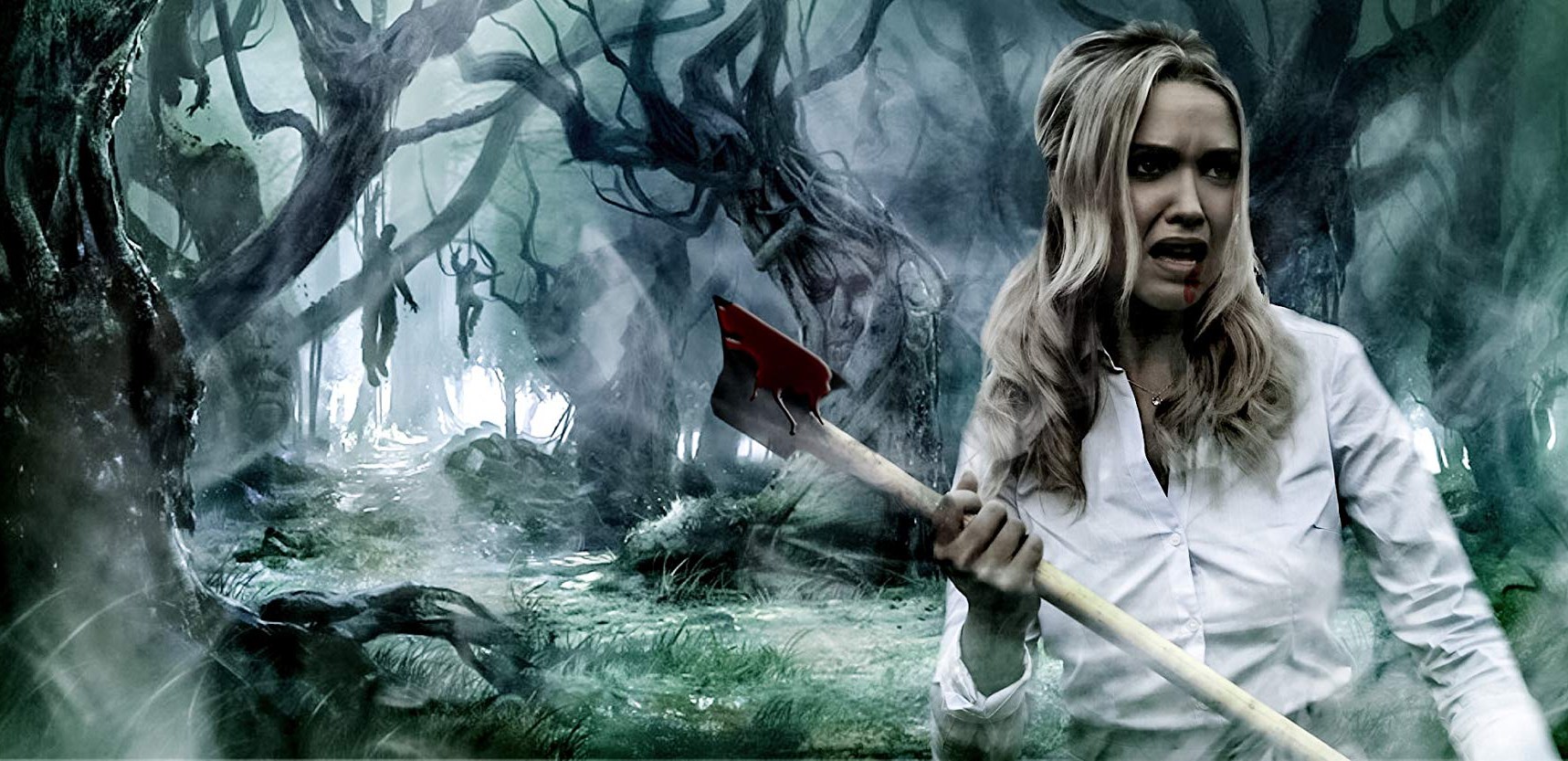 ★★
★★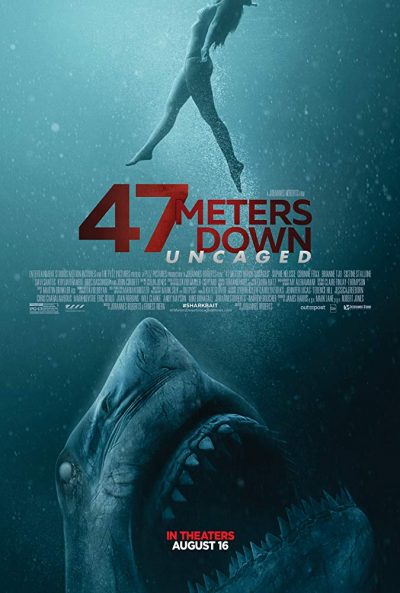 Director Roberts returns for a sequel to
Director Roberts returns for a sequel to